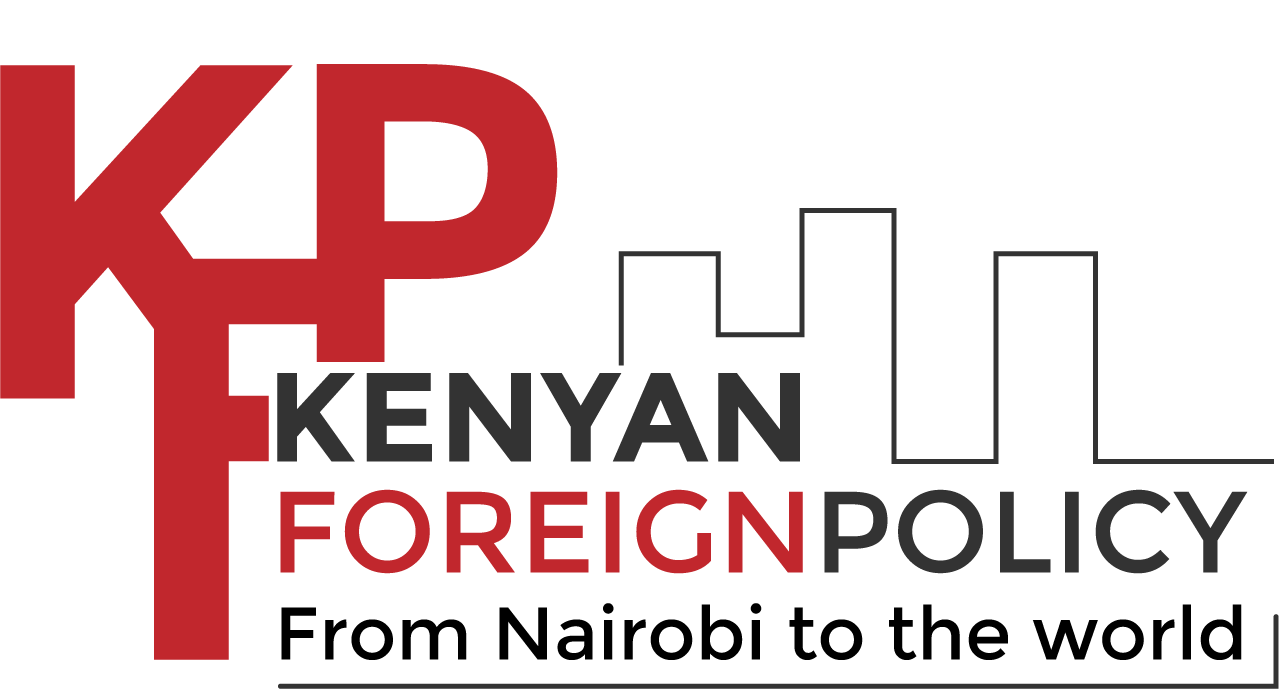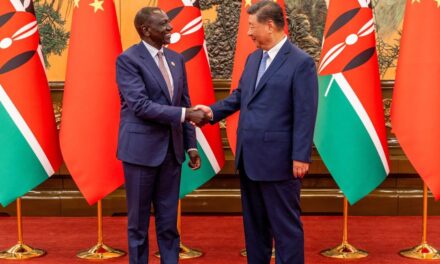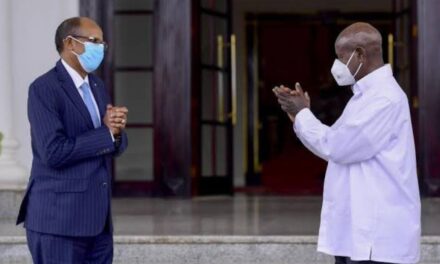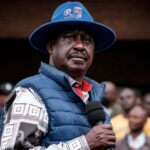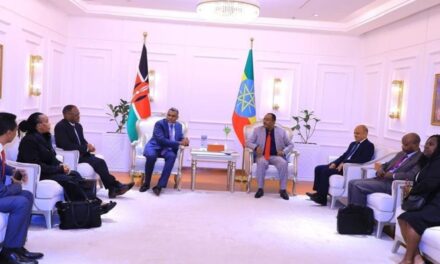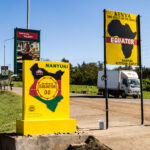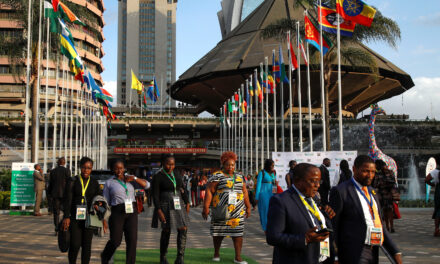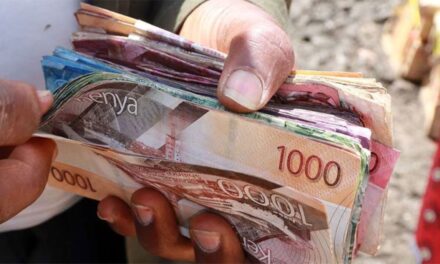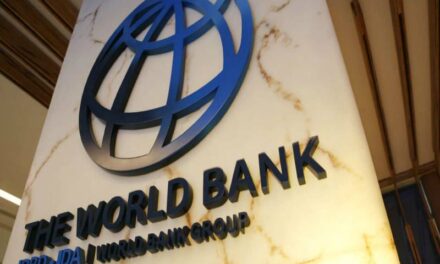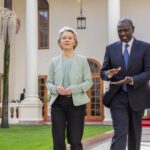

Ruto’s Million-Dollar Boeing Jet was a Gift from the UAE
By Mwangi Maina
| May 30, 2024
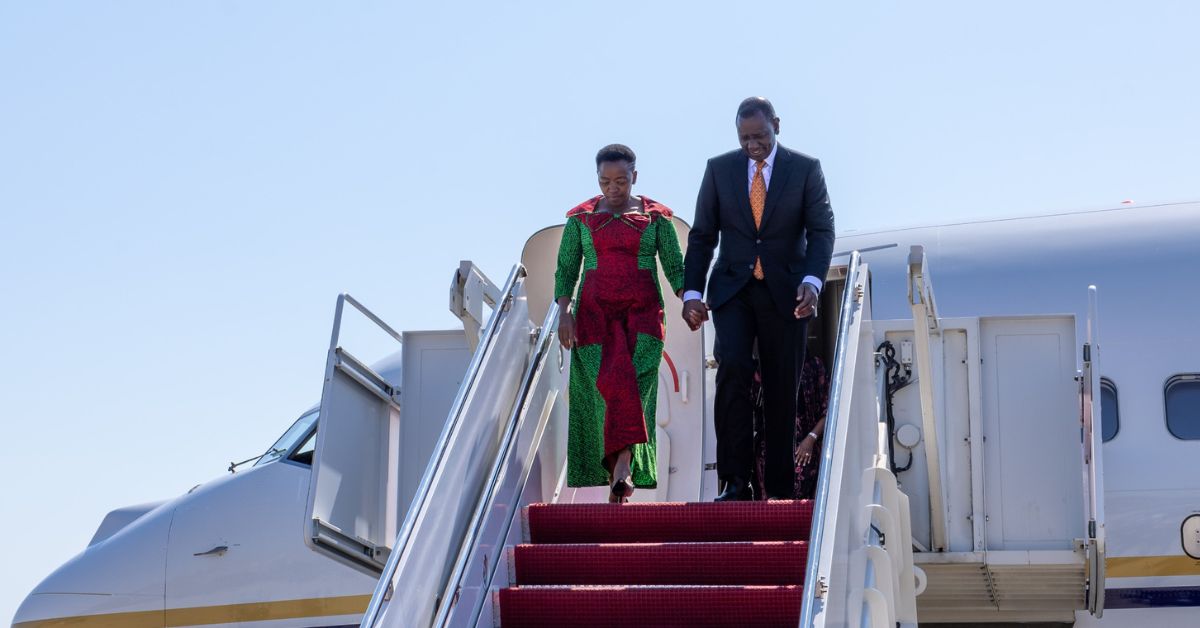
In Kenya, the current office holder, President William Ruto, uses an official presidential jet, which is a Fokker 70 ER acquired in 1995 and operated by the Kenya Air Force, to travel around the world. Despite criticism for his tours, Ruto has always argued that he travels abroad to seek opportunities for jobless Kenyans or extend Kenya’s diplomatic ties with other nations. Photo: Handout
President William Ruto embarked on a state visit to the United States, courtesy of the United Arab Emirates taxpayers.
The government in Abu Dhabi chartered a luxurious Boeing Business Jet operated by Royal Jet, an Emirati company led by royal family member Mohammed Bin Hamad Bin Tahnoon Al Nahyan, as announced by State House Kenya on Thursday evening.
The magnificent bird, identified by tail number A6-RJU, transported Ruto from Nairobi to Atlanta, Washington DC, and back to Nairobi via Casablanca, Morocco.
The decision to reveal the external entity that chartered the jet for the Kenyan leader comes in response to mounting pressure from Kenyans.
This development has sparked controversy and raised concerns regarding accountability and transparency.
The unprecedented American trip, marking the first visit to the White House by an African president since 2008, was overshadowed by the questionable decision of the president and his team.
Despite hailing from a developing country, they chartered a special jet costing millions of shillings to seek development aid from the United States.
Critics argue that the denial and evasive answers, which garnered international attention, lacked credibility and sounded implausible.
They assert that this has seriously tarnished the president’s reputation and standing on the global stage.
The perplexing question arises regarding the logic behind the 10 million shilling charge, as disclosed by President Ruto during Thursday morning’s National Prayer Breakfast.
“I am a very responsible steward believe you me. There is no way I can spend Sh200 million. In fact, it cost the Republic of Kenya less than Sh10 million. I am not a mad man. When I was told the cheapest plane was Sh70 million, I told my office to go and book Kenya Airways…some friends asked me how much I wanted to pay. I said I wasn’t ready to pay more than Sh10 million. They told me to bring the money and they gave me the plane,” explained Ruto.
This amount allegedly covered the cost to Kenyan taxpayers for chartering a jet that could have exceeded 200 million shillings, with the remainder covered by Ruto’s “friends.”
Given the abundant resources of the oil-rich Abu Dhabi-led government under Sheikh Mohamed bin Zayed Al Nahyan, why not simply provide Ruto with the entire plane free of charge?
Why did the President of Kenya, a country with its own presidential jet, albeit with a lower range than the Boeing Business Jet, and a national carrier in Kenya Airways, accept a gift from a foreign government when he had the capacity to handle such travel arrangements domestically?
When the Eastleigh Voice exclusively broke this jet story, we gave Kenyans options. The flying flair may be footed by their taxes or if it was a gift from an external source, it comes with some geopolitical implications, noting that there is no “free lunch”.
These implications could potentially tighten on Kenya like a hangman’s noose. Just a week before the President’s trip to the UAE, Abu Dhabi allocated Sh2 billion in aid for flood victims in Kenya.
The heavy rainfall caused hundreds of deaths, displaced thousands, and damaged infrastructure, including roads, bridges, houses, medical facilities, and agricultural lands, especially in northern Nairobi.
What are Abu Dhabi’s interests in Kenya?
In November last year, a Dubai-based firm Blue Carbon signed a framework of collaboration (FOC) with Kenya’s State Department of Environment and Climate Change that would concede “millions of hectares” of its territory for the production of carbon credits.
The credits would be generated supposedly from restoring and protecting the land, and the company would then sell these on to major polluters to offset their emissions.
Founded only a year ago, Blue Carbon has no experience managing carbon offset projects.
It is led by Sheikh Ahmed Dalmook Al Maktoum, whose close ties to the UAE royal family, which is heavily invested in oil and gas infrastructure, have raised concerns that the firm’s deals could be used to offset the Emirates’ own emissions.
What followed is the illegal eviction of hunter-gatherers from their ancestral lands to profit from carbon offsetting schemes, according to human rights lawyers.
Hundreds of members of the Ogiek community were evicted from the Mau Forest.
Your support empowers us to deliver quality global journalism. Whether big or small, every contribution is valuable to our mission and readers.
